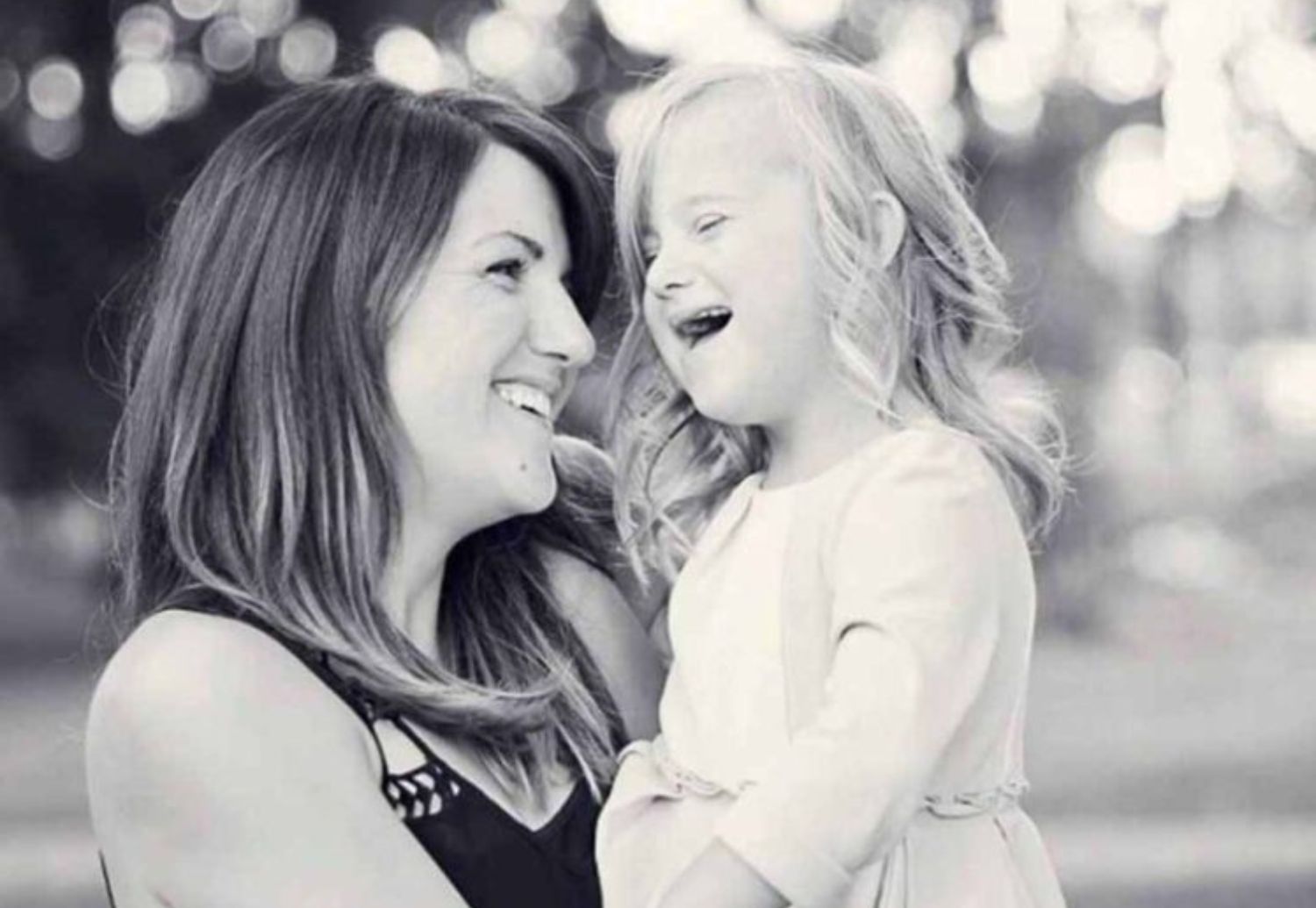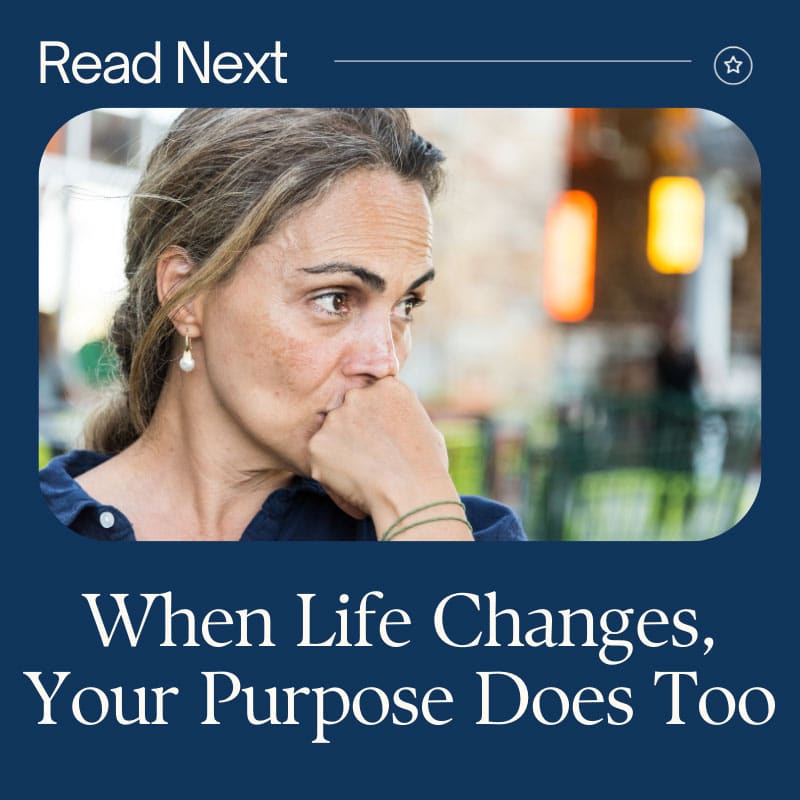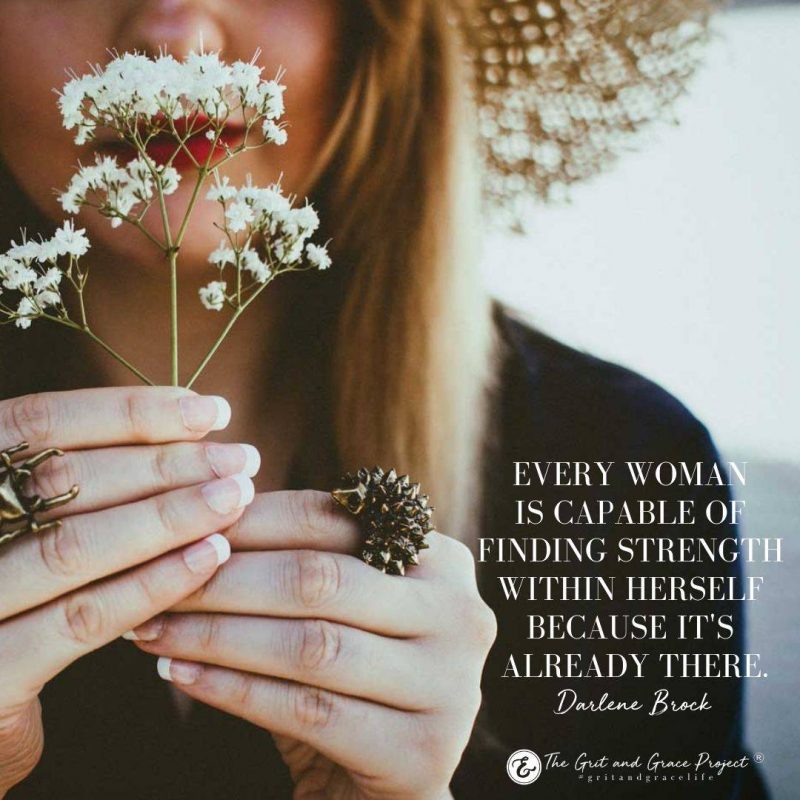As a Mom, I Want You to Know This About Down Syndrome

“We suspect the baby has a genetic abnormality that is causing the birth defects.” Right from the first suspicion that there were issues with the baby girl growing inside of me, the doctors switched from referring to my baby as “your baby” and “she” to less personal terms like “the baby” and “it.” It was my first taste of how our culture views and treats people who are born, for lack of a better term, different.
At 20 weeks gestation, we knew our little girl, Fiona, would have Down syndrome. The diagnosis came a few weeks after we had found out she also had a life-threatening heart defect and bilateral clubbed feet. We were heartbroken and scared. Life was never going to be the same.
“We suspect the baby has a genetic abnormality that is causing the birth defects.” We were heartbroken and scared. Life was never going to be the same.
At the time, all of my hopes and dreams of having a little girl felt as though they were now impossible. How would this affect our boys? How would this affect our marriage? I already loved this little girl so deeply, bonding with her as she moved inside my belly. I found a doctor who called my baby by the name we had chosen to give her. She greeted me with smiles and encouragement, and in that simple act, I found a little hope that maybe others would love my baby as I did.

Fiona had open-heart surgery at five months old, and her heart has been working perfectly ever since. Her little, crooked feet were also fixed within the first two years of her life. As I put tiny ballet slippers on her for her first ballet class, I was slapped again in the face (as I have been many times since she was born) with the ignorant thoughts I had that life was going to be drastically different having a child with special needs. I proceeded to watch as she started kissing herself in the mirror and shaking her booty to the music instead of tiptoeing like the other little ones. She is not a ballerina, but it’s not because of any disability…
I Am so Thankful to Be Living in This Day
Our culture has come so far in our treatment of people differently-abled. Not 60 years ago, it was still common in the U.S. to send your baby with Down syndrome to be raised in an institution, away from society. Today, it is common to find kids of all abilities side-by-side in classrooms across America.
Although we have made huge strides in our treatment and understanding of people with Down syndrome, there is still a stigma that people with Down syndrome are less than the rest of us. When the doctors started referring to my baby in less personal terms, it was because they fully expected me to terminate my pregnancy. Why wouldn’t they, when it is estimated that over 90% of women who find out prenatally that their baby has Down syndrome, terminate?
Every day I am faced with people who joke about being slow, “retarded,” and elude to their view that people with mental handicaps have no value. Even little things like referring to people with Down syndrome as “Down’s people” show that subconsciously, we are defining them by their diagnosis and not who they are. You wouldn’t say “that cancer woman,” would you? It doesn’t sound right because we should acknowledge the important part, the person, first.
Although we have made huge strides in our treatment and understanding of people with Down syndrome, there is still a stigma that people with Down syndrome are less than the rest of us.
The Biggest Stumbling Block Is Getting Rid of This Stigma
We fear what we don’t understand. That is why inclusion is such an amazing thing. The more we expose ourselves and our children to people, cultures, and things that are different or odd to us, the more we are able to be compassionate. We are able to find beauty within our new understanding.
Physically, Fiona is about the size of a three- or four-year-old and has the vocabulary of about a two-year-old. I say vocabulary and not brain because if you spend time with people who have Down syndrome, you can quickly tell that they are smart. Their brains just work slower. It’s hard for Fiona to form words correctly in her mouth because she has very low muscle tone, as most people with Down syndrome do. That, combined with her brain not being able to send the signals fast enough to her mouth, causes her sentences to come out simple and difficult to understand.
Though she is almost six years old, most kids her age assume she is much younger and treat her as such. This does not offend me—and I don’t think my friends should force their kids to play with my daughter. But, like I said, ignorance is what keeps people from getting to know others who are different than themselves.

Never Be Afraid to Ask Questions
It is much better to possibly offend someone by asking than to ignore someone and live in ignorance. And don’t stop your kids from asking or from talking to fellow parents of children with disabilities. As much as it can be uncomfortable to be stared at, it is much worse to be ignored altogether. Don’t stop your children from staring, but encourage them to ask questions and to come talk to us if the situation allows. I realize as I give this advice that there will still be times when some families will be offended by this. But I would rather be slightly offended than completely ignored. I would rather you or your child have an answer than to make assumptions and stereotypes.
Many people don’t understand why I did not terminate when I found out she would have Down syndrome—they don’t think that a “subpar” life is worth living, or they assume that the weight of caring for someone with special needs is too burdensome. But a little time spent in my house as a fly on our wall would clear up much of their concerns.
Is life with a child or adult with Down syndrome difficult and draining at times? Of course, it is. But I would answer the same way about raising my twin boys! Fiona has brought ten times more laughter and joy into our house than she has tears. We know most of the obstacles ahead we have to prepare for, whereas, for our other two, they are wild cards! Who knows what kind of heartache or trouble they will bring us? (Hopefully, none! But who knows?)
Having a child with Down syndrome has made us all that much more intentional about ensuring that family is a top priority in our kids. I watch my boys, on their own, teach and help their sister and witness the joy they have in doing so. At their young age, they grasp the value of their little sister as a person. As a family, we know this: Fiona’s life is anything but subpar; it’s just different.
October is nationally recognized as Down Syndrome Awareness Month, so would you please consider trying to push out some of the stigmas by learning more about this chromosome abnormality, medically known as Trisomy 21? There is a great show on A&E called Born This Way that follows six young adults with Down syndrome, giving you a glimpse into their lives. There is also a great children’s book called My Friend Has Down Syndrome by Amanda Doering Tourville that you can read with your kids. I am also more than happy to answer any questions.
You might also like Life Before Skylar (another Mom’s story of a difficult special needs diagnosis) and Keeping a Marriage Strong When Hardship Strikes (on marriage with a special needs child).
As a family we know this: Fiona’s life is anything but subpar because she has Down syndrome; it’s just different.
—
#gritandgracelife
Don’t miss this series from our podcast This Grit and Grace Life Podcast: Hardship Hit This Singer’s Life and She Chose to Fight! with Cameron James Pt. 1 – 048 !

